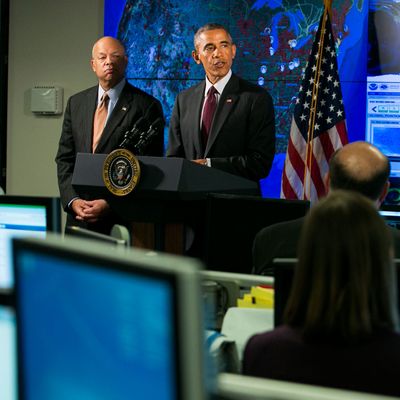
In early October, days after the Obama administration acknowledged a belief that the Russian government is trying to influence the presidential election by hacking Democrats and releasing their emails, the White House said President Obama was considering a “proportional” response against the Kremlin.
Nearly a month later, the New York Times reports that the president has put off that response until after the election “to avoid the appearance that politics influenced his decision and to avoid provoking Russian counterstrikes while voting is underway.”
But once the election is over, all of that could change. Or Obama could leave the responsibility with his successor. Either way, the response appears to be coming. If Obama decides to engage in a cyberwar with Russia, his instincts “are to deal with the problem by developing new norms of international behavior or authorizing covert action rather than direct confrontation,” the Times says.
What might that covert action entail? NBC News has some hints. In an article published Friday, it revealed that the U.S. has “penetrated Russia’s electric grid, telecommunications networks and the Kremlin’s command system.” If Russia interferes with the election Tuesday, the U.S. is poised to strike.





























